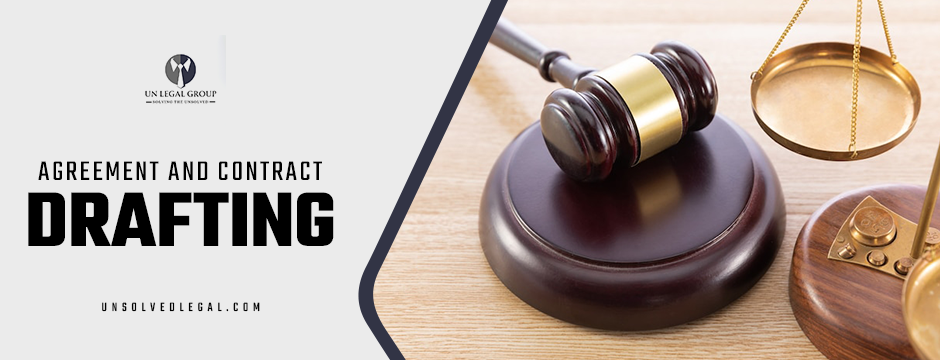In India’s dynamic and evolving business environment, where start-ups, SMEs, and large corporations continue to thrive and expand, legal clarity and protection have become more essential than ever. One of the cornerstones of any business operation is the creation and management of well-defined legal documents that govern relationships and transactions. This is where agreement and contract drafting plays a pivotal role. Whether you are forming partnerships, hiring employees, leasing property, or entering into service agreements, having well-drafted contracts is vital for safeguarding interests and ensuring long-term success.
The Legal Foundation of Business Relationships
Every commercial relationship is built on trust, but that trust must be supported by legally enforceable agreements. In India, contractual obligations are governed by the Indian Contract Act, 1872. This law lays down the key components of a valid contract, including offer and acceptance, lawful consideration, capacity of parties, free consent, and a lawful object. Without adhering to these principles, a business agreement may be rendered invalid or unenforceable.
Businesses often find themselves in trouble not due to a lack of understanding of their objectives, but because of poorly written or informal agreements. This is particularly common among start-ups and small enterprises that rely on verbal promises or informal arrangements. The absence of written documentation or a poorly constructed contract can lead to misunderstandings, financial losses, and legal disputes.

Preventing Disputes Through Clarity
The primary function of a well-drafted agreement is to bring clarity to the terms of engagement. Who is responsible for what? What are the deliverables? What happens if one party fails to deliver? What is the mode of payment and time frame for completion? These and other details, when clearly articulated, minimise ambiguity and protect all parties involved.
Agreement and contract drafting is not just about putting words on paper—it’s about foreseeing potential points of contention and addressing them upfront. For instance, a service agreement should clearly specify performance benchmarks, timelines, liability clauses, and exit conditions. A vague or generic document may leave room for interpretation, which could be used against the interests of one party during a dispute.
Supporting Business Growth and Compliance
As businesses grow, so do their contractual needs. Expansion into new markets, onboarding vendors, engaging contractors, and seeking investments all require sound legal documentation. Contracts are not just legal safeguards but also tools for effective business management. They define the scope of relationships, outline expectations, and create accountability.
Furthermore, businesses operating in India must also comply with various laws beyond the Indian Contract Act—such as labour laws, tax regulations, intellectual property laws, and more. Professionally crafted agreements ensure that all these regulatory requirements are adequately addressed. This becomes even more critical in regulated sectors such as fintech, pharmaceuticals, and e-commerce, where compliance is non-negotiable.
Building Investor Confidence
In today’s competitive funding landscape, investors are keenly interested in how legally sound a business is. Before committing to an investment, due diligence is conducted, which includes a review of all major contracts. A company with sloppy or missing agreements may come across as risky or unprofessional. On the other hand, clear, legally valid contracts signal preparedness, professionalism, and risk mitigation—qualities that significantly enhance investor confidence.
Having robust agreement and contract drafting practices also aids in structuring equity deals, co-founder agreements, shareholder agreements, and more. These documents are not only necessary for regulatory reasons but also for avoiding internal disputes that may otherwise derail the company’s progress.
Tailoring Contracts to Suit Indian Business Realities
While there are standard contract formats, every business is unique. Indian businesses, in particular, operate within a diverse and often complex landscape of cultural, legal, and economic factors. What works in a Western legal contract might not always suit Indian realities. For example, dispute resolution clauses must consider whether parties prefer arbitration over litigation, and where the jurisdiction should lie. Payment clauses may need to factor in GST or local taxation norms.
Customisation is key. Localised agreement and contract drafting ensures that the contract aligns with business goals, local regulations, and industry practices. It also takes into account common Indian commercial issues such as delayed payments, verbal commitments, and informal work cultures, ensuring the final document is both practical and enforceable.
The Role of Legal Professionals
Many businesses attempt to draft agreements on their own or use generic templates available online. While this may seem cost-effective initially, it often leads to gaps that can be exploited later. Legal professionals bring not just drafting skills but also foresight, experience, and an understanding of sector-specific nuances.
An experienced legal advisor can craft contracts that are robust, ensure equitable terms, and effectively minimise potential risks. They also stay updated on legal changes, which is particularly important in India where policy and legal reforms are frequent. For businesses that aim to scale or operate in multiple jurisdictions, having a legal partner who understands both domestic and international laws can make all the difference.
Your Legal Growth Partner: UN Legal Group
At UN Legal Group, we go beyond traditional legal services by aligning our approach with your business goals. Based in Delhi, our team of forward-thinking corporate law professionals partners with start-ups, founders, and investors to deliver tailored, growth-oriented legal solutions. With a strong foundation in trust, equality, and justice, we specialise in understanding your business from the ground up—ensuring your contracts and agreements support long-term success in a fast-evolving market.
Conclusion
In conclusion, agreement and contract drafting is far more than a routine legal formality. It is a strategic business tool that enables companies in India to operate smoothly, protect their interests, and build lasting relationships. From reducing legal risks and ensuring compliance to attracting investors and preventing disputes, well-drafted contracts form the bedrock of sustainable business success.
For Indian businesses, especially in today’s rapidly changing environment, investing in professional contract drafting is not optional—it’s essential.




